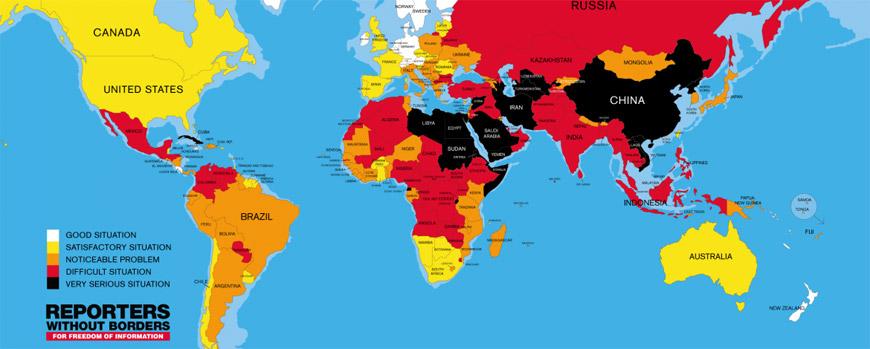You are here
Lack of access to info helps spread rumours — journalists
By Mohammad Ghazal - Feb 17,2015 - Last updated at Feb 17,2015
AMMAN — Journalists have complained of "great difficulty" in accessing information, an obstacle which hampers their work to a high degree and opens doors to rumours and inaccurate reporting.
Journalists and media experts interviewed by The Jordan Times this week alleged that public and private institutions practise “favouritism”, in the form of providing information to certain media outlets and media personnel and holding it from others.
"There is a big problem when it comes to journalists’ access to information. Agencies, whether public or private, are not open to the media and this leads to negative consequences on the work of the press," Tareq Momani, president of the Jordan Press Association (JPA), told The Jordan Times on Sunday.
"Lack of solid, well-sourced information leads to rumours and speculations," he said.
Although Jordan passed a law in 2007 that guarantees access to information, media outlets still struggle when they hunt for data to build their stories, Nidal Mansour, president of the Centre for Defending the Freedom of Journalists, told The Jordan Times.
"Studies indicate that this is the major problem facing journalists. Although we have a law that is supposed to guarantee easy access to information, in reality, this very law makes it more difficult to actually do the job,” he added.
In 2012, amendments were introduced to the law enabling non-Jordanians to access information in implementation of international agreements that Jordan has entered, under which it is obligated to provide information to foreigners.
Those wishing to obtain information through this law must fill out a special form and wait for an official response. The law stipulates that if there is no answer within 15 days, it means the application was rejected. In this case the applicant has the right to either resort to the Higher Court of Justice or lodge a complaint with the Information Council, a specialised body formed to oversee the implementation of the law.
"This law does not make our lives better. In our work, we need quick information to publish reports. Our work requires having information on the spot to be competitive, especially in today's environment where people can read online and do not wait until next day to read newspapers," Hatem Abbadi, managing editor at Al Rai daily, told The Jordan Times.
"I have never used the law and I do not think I will ever use it," Abbadi said.
Faeq Hijazeen, head of the economic section at the Jordan News Agency, Petra, agreed.
“Sources, whether in the private or the public sector, are usually reluctant to share information with the press,” Hijazeen told The Jordan Times Sunday.
“The law does not help at all. It adds more red tape to the process,” he added.
The experts and journalists said the law might serve researchers, but not journalists.
Mansour said the law needs to be amended to ensure depth in reporting with solid facts, and accurate and updated figures.
Omar Maharmeh, a local news editor at Ad Dustour, echoed similar remarks, highlighting “discrimination” on the part of officials when dealing with media outlets.
“They prefer to deal with certain media outlets and maybe with specific journalists. When they give information, they think they are doing journalists a special favour, although we have the legal right to access information of interest to the public,” Maharmeh said.
However, Mansour said journalists are also to blame for not taking advantage of the law.
“A very limited number of journalists have resorted to the law to obtain information. I agree it is useless and makes the process more bureaucratically complicated. They should fill applications and then object if they do not receive answers because this way we can document that the law is useless and give facts and figures about this,” said Mansour.
Mariam Nasser, chief reporter at the lifestyle desk at Al Ghad daily, said the lack of information is an issue that journalists face, but it depends on sectors reporters cover.
“As I cover the lifestyle section, I do not face a big problem in getting information most of the time,” she told The Jordan Times on Sunday.
“I have never used the law because I think the period to get a reply back is too long and does not help… I face problems sometimes when I need statistics which eventually affects the work of journalists and leads to shallow reporting,” said Nasser.
“Everyone should have access to information according to the law and it is illegal for any agency to deny access to information,” Minister of State for Media Affairs and Communications Mohammad Momani told The Jordan Times, commenting on the journalists’ remarks.
Related Articles
AMMAN — The spread of rumours and fake news is among the major challenges facing the media, Minister of State for Media Affairs Jumana Ghuna
AMMAN — The Centre for Defending Freedom of Journalists’ (CDFJ) President Nidal Mansour stressed that Jordan is taking positive steps toward
AMMAN — Jordan’s press freedom ranking dropped by three places in 2016 compared to 2015, according to the World Press Freedom IndexThe index
















